Voyant has allowed for an interesting review of my web journey through sci-fi from this past semester. The changing trends in my searches painted an interesting picture of how my interest in SF has developed over the past few weeks.

Many of my early searches were just looking into SF very generally. Searches like Science Fiction + “pop culture”, “famous”, “influential”, “best”, “movies”, “books”, etc. Things like Star Wars and Dune seem to have such a massive and passionate following that they continued to pop up across many of these searches. Both Star Wars and Dune made it on this final word web. Then I started to refocus on science fiction in the medium of video games, which I spent much of the semester writing about on my website. “Game” and “games” are both in the top 10 most frequently appearing words from my searches. But the top 3 searches really reflect the interest that started to develop in the middle of the semester: “Science”, “Fiction”, and “Fantasy”.
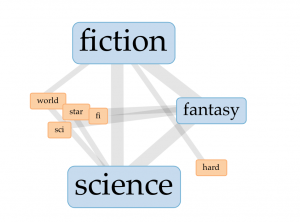
Science, Fiction, and Fantasy were definitively my top 3 results across all my searches. In a class based entirely around science fiction, the fact that “Science” and “Fiction” made the cut may not be very surprising but “Fantasy” may seem a little more out of place. I’ve loved the Fantasy genre since long before this class. Adventures of old, medieval magics, and Lord of the Rings have always interested me and I became interested by the overlap between fantasy and SF. Things like Star Wars had the qualities of an epic adventure that I loved about fantasy but reigned as a definitive part of SF, so I started to look into the distinction between Science Fiction and Fantasy. What I found were many articles and discussions surrounding the idea of “Science Fantasy,” a hybrid combination of the two genres. The further I explored this distinction, the more I saw debate online over what works belong in SF, Fantasy, or Science Fantasy. I became interested in where things like Iron Man or other superheroes fell within this distinction. More and more I found heated arguments and strong opinions about why certain works should be definitively excluded from being considered SF or Fantasy. It seemed that no work was safe from critique – many people argued that even Star Wars, perhaps the most popular SF works of all time, should absolutely not be considered science fiction as it was science fantasy (these arguments often centered around the idea of the force as being rooted in the mystical instead of in the scientific).
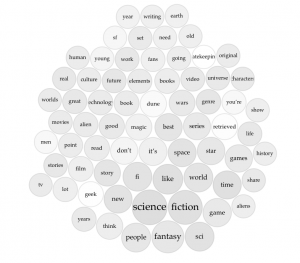
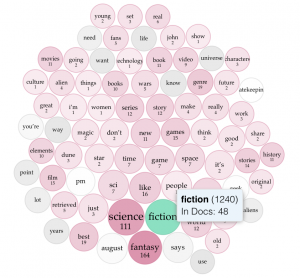
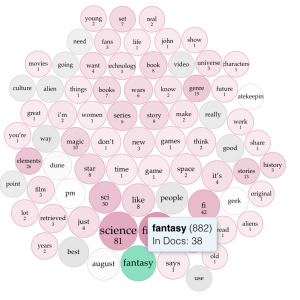
This felt strange to me so I started to search about it and found the discussion surrounding gatekeeping in SF. The idea that some people passionate about SF were trying to define the SF in incredibly restrictive ways. It turns out that gatekeeping is an issue that some SF authors are familiar with and have spoken out against because it unnecessarily limits what can be considered “science fiction” and makes it hard for newcomers to SF to actually enjoy the genre. That is an idea that matches the tone of this class – that the distinction what makes a work SF is incredibly broad.
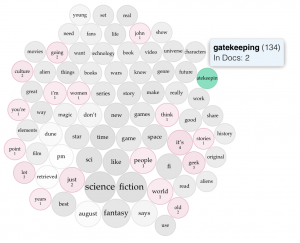
So, my semester in review covers my initial interest in popular science fiction, my shift to SF video games, and my interest in the relationship between Fantasy and Science fiction.
